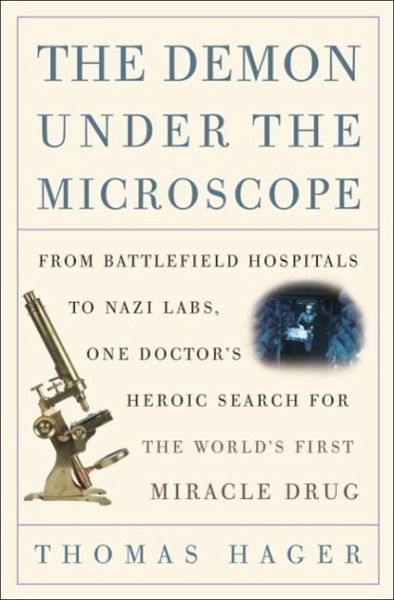
The Demon Under the Microscope (eBook, ePUB)
From Battlefield Hospitals to Nazi Labs, One Doctor's Heroic Search for the World's First Miracle Drug
Versandkostenfrei!
Sofort per Download lieferbar
7,99 €
inkl. MwSt.
Weitere Ausgaben:

PAYBACK Punkte
4 °P sammeln!
In The Demon Under the Microscope, Thomas Hager chronicles the dramatic history of sulfa, the first antibiotic and the drug that shaped modern medicine. The Nazis discovered it. The Allies won the war with it. It conquered diseases, changed laws, and single-handedly launched the era of antibiotics. Sulfa saved millions of lives-among them those of Winston Churchill and Franklin Delano Roosevelt Jr.-but its real effects are even more far reaching. Sulfa changed the way new drugs were developed, approved, and sold; transformed the way doctors treated patients; and ushered in the era of modern me...
In The Demon Under the Microscope, Thomas Hager chronicles the dramatic history of sulfa, the first antibiotic and the drug that shaped modern medicine. The Nazis discovered it. The Allies won the war with it. It conquered diseases, changed laws, and single-handedly launched the era of antibiotics. Sulfa saved millions of lives-among them those of Winston Churchill and Franklin Delano Roosevelt Jr.-but its real effects are even more far reaching. Sulfa changed the way new drugs were developed, approved, and sold; transformed the way doctors treated patients; and ushered in the era of modern medicine. The very concept that chemicals created in a lab could cure disease revolutionized medicine, taking it from the treatment of symptoms and discomfort to the eradication of the root cause of illness. A strange and colorful story, The Demon Under the Microscope illuminates the vivid characters, corporate strategy, individual idealism, careful planning, lucky breaks, cynicism, heroism, greed, hard work, and the central (though mistaken) idea that brought sulfa to the world. This is a fascinating scientific tale with all the excitement and intrigue of a great suspense novel.
Dieser Download kann aus rechtlichen Gründen nur mit Rechnungsadresse in A, B, BG, CY, CZ, D, DK, EW, E, FIN, F, GR, HR, H, IRL, I, LT, L, LR, M, NL, PL, P, R, S, SLO, SK ausgeliefert werden.



